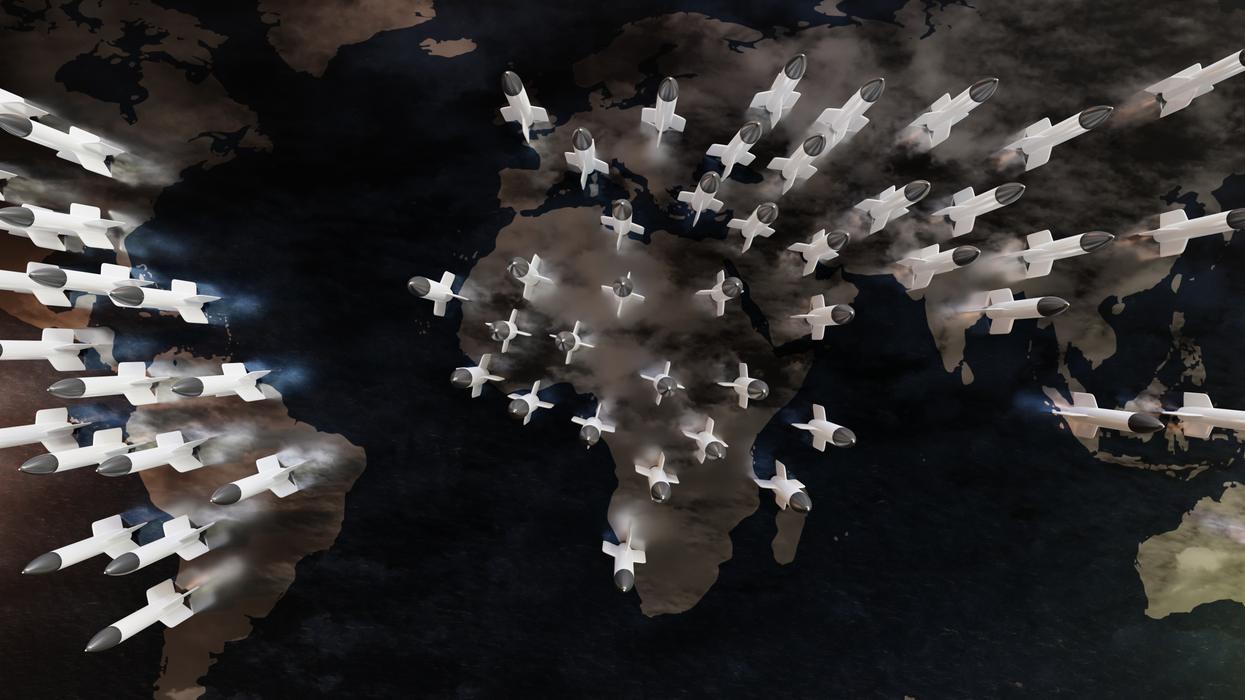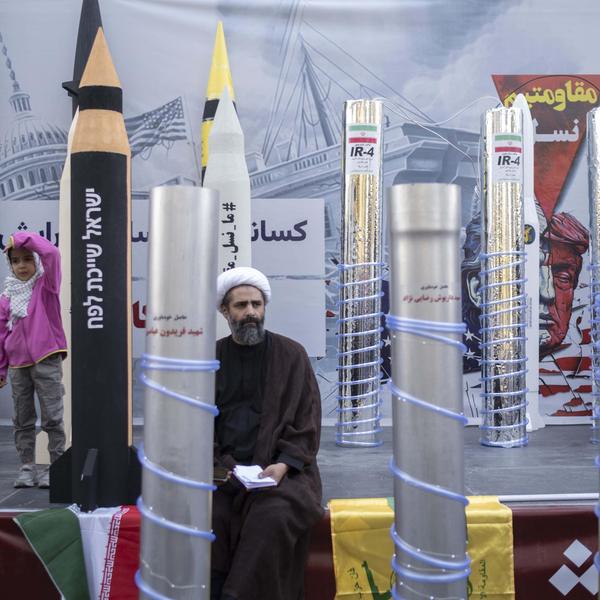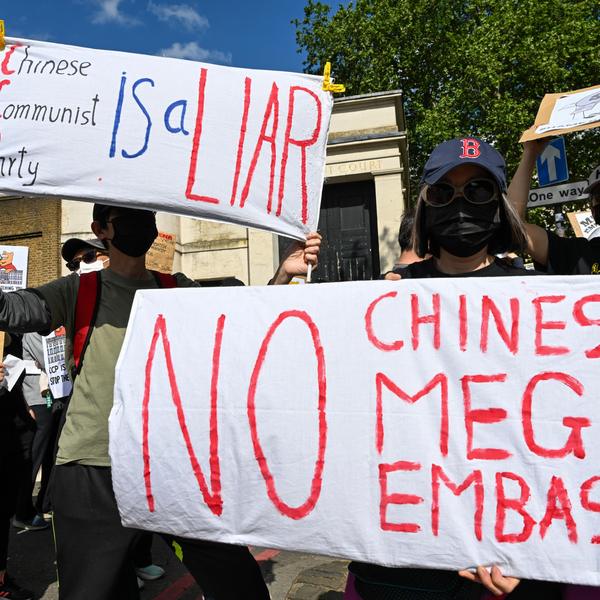The situation on the Lebanese-Israeli front is escalating as Hezbollah and the Israeli military engage in daily tit-for-tat exchanges. These clashes have led to a rising death toll on both sides, sparking fears of a new war front as Israel continues its campaign against the Palestinian Hamas movement in Gaza.
Against this backdrop, senior U.S. officials continue to warn against Hezbollah opening a new front with Israel. This fear, however, reflects a misunderstanding of Hezbollah’s approach to the current conflict. The Lebanese Shiite movement’s operations on the southern border should rather be seen as what it perceives as “an act of necessity” to preserve itself.
Hezbollah’s current military strategy vis-a-vis Israel
Following operation “Al-Aqsa Storm,” in which Hamas killed some 1,400 Israeli and foreign citizens and abducted more than 200 others, Hezbollah declared that it would not be a bystander as Israel initiated its response.
Addressing a rally in Beirut, the head of the movement’s executive committee, Hashem Safiedine, underscored that Hezbollah was not a neutral party in the ongoing hostilities. The Shiite movement also launched a cross-border attack on Israeli military positions in the disputed area of Shebaa Farms, describing the operation as an act of solidarity with the Palestinians.
While the cross-border exchanges between Hezbollah and Israel have intensified in the weeks that have followed, they have remained contained to the border region. The Shiite movement has carefully chosen its targets, focusing on Israeli military posts in the area. Israel’s retaliatory action on the Lebanese front has likewise been measured and restricted to the border region.
Well-informed sources close to Hezbollah emphasize that the movement’s scope of operations thus far appear to rebut the notion that it intends to open a full-on second front against Israel.
“If Hezbollah wanted to take advantage, it would have done so right after the Hamas operation as Israel was still in a vulnerable position,” said one source who spoke on condition of anonymity.
“All sides are keen on avoiding an all-out war” he added, affirming that this stance applies very much to Hezbollah. “A full-blown war now would prove costly, with Israel amassing troops in the north and the United States sending aircraft carriers to the region,” he stressed.
Senior officials from the Lebanese Shiite movement have characterized its cross-border operations as designed to both demonstrate its solidarity with Hamas and distract the Israeli military. The movement’s second-in-command, Naim Qassem, stated that the goal is to weaken the Israeli side.
A second source close to Hezbollah’s leadership confirmed that the movement is trying to overstretch the Israeli military in the midst of its campaign in Gaza.
“What is taking place is a war of attrition,” explained the source, who asked not to be named. “Hezbollah is forcing Israel to divert military resources to the northern front in order to weaken its military operations in Gaza,” he added.
Hezbollah’s red lines
According to the second source, however, Hezbollah’s strategy could change if Israel launches a major ground offensive into Gaza as reportedly planned.
“All options are on the table if Israel goes ahead with a ground invasion into Gaza” he emphasized.
Israel has in fact launched ground operations into Gaza in what it has described as the next stage in its campaign. However, it has yet to launch a full-scale invasion of the coastal enclave. As of this writing, Hezbollah has not escalated beyond targeting Israeli military positions in the border area. Ultimately, Hezbollah’s future course of action will likely be determined by how the situation on the ground evolves. The first source underscored that the declared Israeli objective of annihilating Hamas constitutes a red line for the movement.
“If Israel appears on the verge of destroying Hamas, Hezbollah, along with the Houthis in Yemen and other regional players, will intervene to prevent that scenario,” he added.
The movement’s red line stems from concerns that it may be next on Israel’s list should the latter appear to be achieving its declared mission against Hamas. Asked if that was indeed Hezbollah’s approach, the first source responded, “Certainly.”
Indeed, these concerns appear warranted to some degree amid reports that Israel’s defense minister and its top military brass were pushing for a pre-emptive attack against Hezbollah in parallel with the campaign against Hamas.
According to these reports, these voices were overruled by Prime Minister Netanyahu at the urging of the United States. The destruction of Hamas, however, would free up Israeli resources and possibly upset the mutual deterrence that has preserved the calm on the Lebanese-Israeli front since the July 2006 war. Under such a scenario, Israeli political leaders could deem it less risky to launch a full-scale military campaign against Hezbollah.
Biden's dilemma
The Lebanese Shiite movement’s red lines threaten to put the Biden administration in a bind. The White House approach to the current conflict rests on two major pillars: throwing its full weight behind Israel’s goal of annihilating Hamas while seeking to prevent a broader conflict from erupting.
Hezbollah’s strategy makes achieving both goals very difficult, if not impossible. As noted above, an imminent Hamas defeat in Gaza will likely trigger escalation not just from Hezbollah itself, but also from its allies in Yemen. Iraq’s Popular Mobilization Units are also likely to enter the fray under such a scenario.
This is due to the influence the Lebanese movement enjoys with these groups as a result of both ideological affinity and battlefield support, as Hezbollah has provided assistance to both Yemen’s Houthis in their war against the Saudi-led coalition, and to the predominantly Shiite militias in Iraq in their campaign against ISIS. Like Hezbollah, both the Houthis and the Iraqi militias have received significant assistance from Iran.
Possible scenarios
Given Hezbollah’s assessment that the annihilation of Hamas would be a prelude to an existential threat against the movement itself, U.S. warnings are unlikely to deter the group should such a scenario unfold. Despite the deployment of two U.S. aircraft carrier strike groups to the region, Hezbollah has continued its cross-border operations against Israel.
Meanwhile, former senior U.S. officials like the Quincy Institute’s Steve Simon believe that direct U.S. military action against Hezbollah is unlikely.
“The U.S. will be in a position to intervene if it chooses to do so,” said Simon, a former Obama Administration senior advisor for the Middle East and North Africa, in an email exchange. “But I doubt they will or that the Israelis will want them to,” he added.
Reports have nevertheless emerged that U.S. military action against the Lebanese movement has been discussed at senior levels in government.
But American military operations against Hezbollah would also almost certainly lead to intensifying attacks on U.S. troops by the Lebanese movement’s ideological allies, including the Houthis in Yemen and Iranian-backed militias in Iraq. This would effectively mean a regional war in which U.S. forces will find themselves once again under fire.
- Tracking the US military build-up today in the Middle East ›
- Biden refuses to talk 'ceasefire' though it could prevent a regional war ›
- Will US troops be drawn into the Israel-Gaza war? ›
- How US, Hezbollah interests align amid Gaza war - Responsible Statecraft ›
- Hawks pushing for more fronts in Israeli military operations - Responsible Statecraft ›
- Are Israel and the United States on a collision course? - Responsible Statecraft ›
- Israel kills Hamas leader in Beirut, sparking escalation fears | Responsible Statecraft ›
- Where Israeli assassination tactics outside Gaza may go | Responsible Statecraft ›
- Is Hezbollah ready to deal with Israel? | Responsible Statecraft ›
- Hezbollah leader ups ante after attack on Iranian consulate | Responsible Statecraft ›
- Hezbollah plays down Israel threat of full blown war | Responsible Statecraft ›
- Is Israel-Hezbollah war inevitable? | Responsible Statecraft ›
- Golan Heights attack is match that could set Israel-Hezbollah ablaze | Responsible Statecraft ›
- Biden sends US troops to Israel weeks ahead of election | Responsible Statecraft ›
















